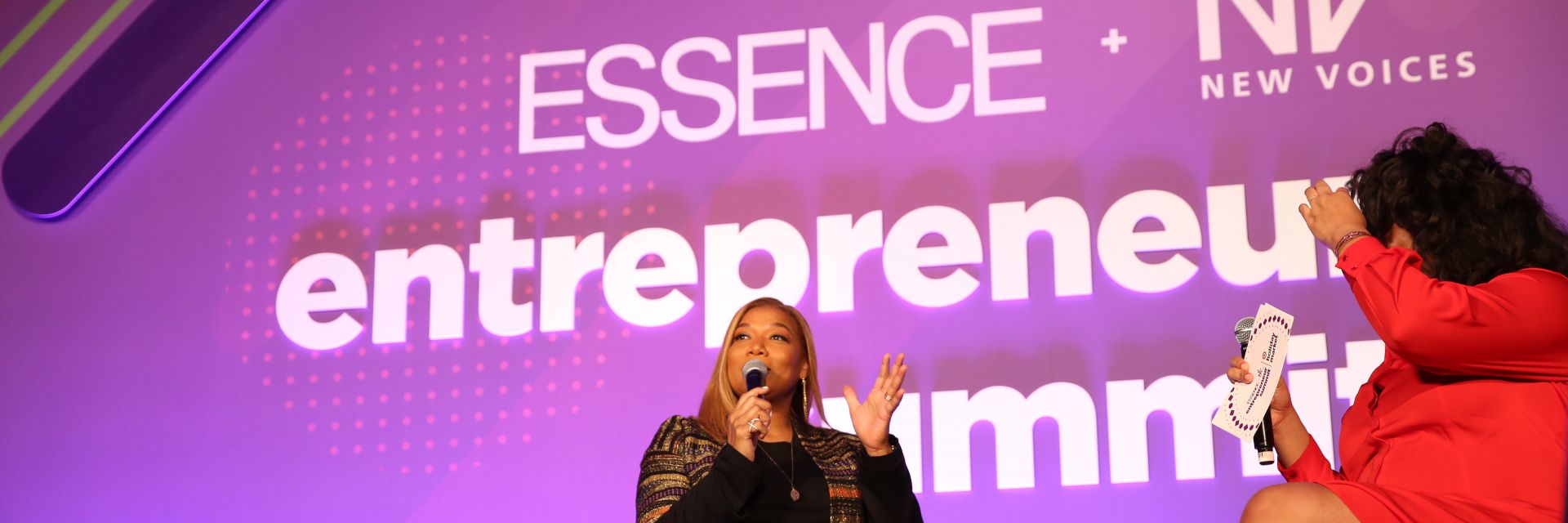At day two of the ESSENCE + New Voices Entrepreneur Summit in Atlanta, a standing room-only crowd greeted Queen Latifah like royalty. The radiant beauty looked effortless in a multi-colored metallic print duster with a royal flair, paired with a simple black sweater and jeans ripped at the knee, complimented by short, black leather boots. She also sported a gold bottom grill—a rarity for the multi-hyphenate entertainer—who first rose to stardom as a rapper in the male-dominated musical genre.
Before jumping into the fireside chat with ESSENCE Global Beauty Director Julee Wilson, Latifah took a moment to address the crowd.
“Honestly, I just have to take a moment and just acknowledge how beautiful y’all look and what a gift this is to be here,” she told the audience. “To be a part of something so monumental. It’s something that should be a norm and one day, it will be.”
Responding to Wilson’s observation that we’ve witnessed her evolution from New Jersey rap trailblazer to a superstar in music, television, film, beauty and business, followed by a question about what “evolution” means to her, Latifah.
“For me, evolution is really just a way of saying longevity,” she said. “It’s really just a way of saying growth and that’s a wonderful thing to have, to be able to evolve.”
Noting how difficult it has been for many to achieve that in the spotlight, Latifah seemed grateful for her journey. As they discussed her natural business acumen at the beginning of her career, Latifah credited her mother and her family for providing early examples of entrepreneurship, with her grandfather having a hardware store in Newark and her grandmother owning boarding houses. She also explained that looking back at how many older Black music artists suffered financially also spurred her to handle her business. Crediting her business partner Shakim Compere and the rest of their Flava Unit team for their success and longevity, Latifah also elaborated on her own self-care, sharing that she and her team scheduled things six months, a year and eighteen-months in advance.
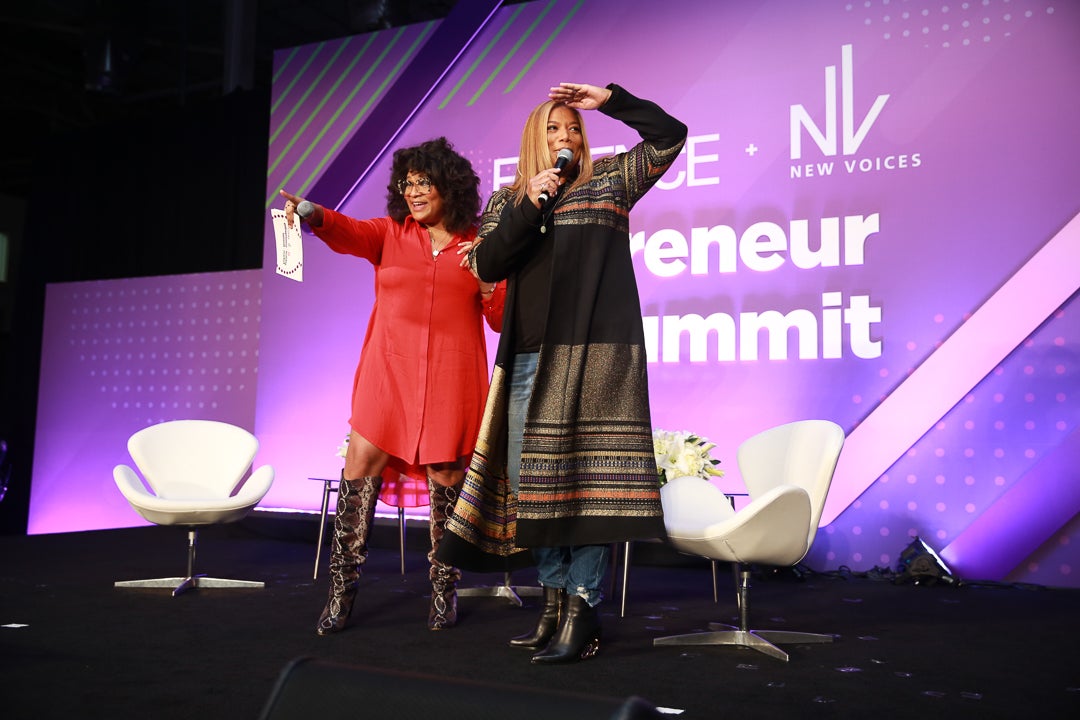
“Women, we always put a lot of things in front of our own health and our own sanity and our own peace of mind and our souls. And if we don’t schedule ourselves into our own schedules, we will burn out,” she warned.
References to the Grammy, Golden Globe, Emmy and NAACP Image Award winner’s status as a trailblazer in the cosmetics space evoked thoughtful review and reflection from her regarding her historic Covergirl cosmetics collaboration over 15 years ago. Latifah explained that her motivation for the groundbreaking Queen Collection, created with the late makeup artist Roxanna Floyd, was a dark-skinned Black woman who worked at JFK Airport in New York and always encouraged her. When she lamented that there was no makeup she could buy, Latifah got to work.
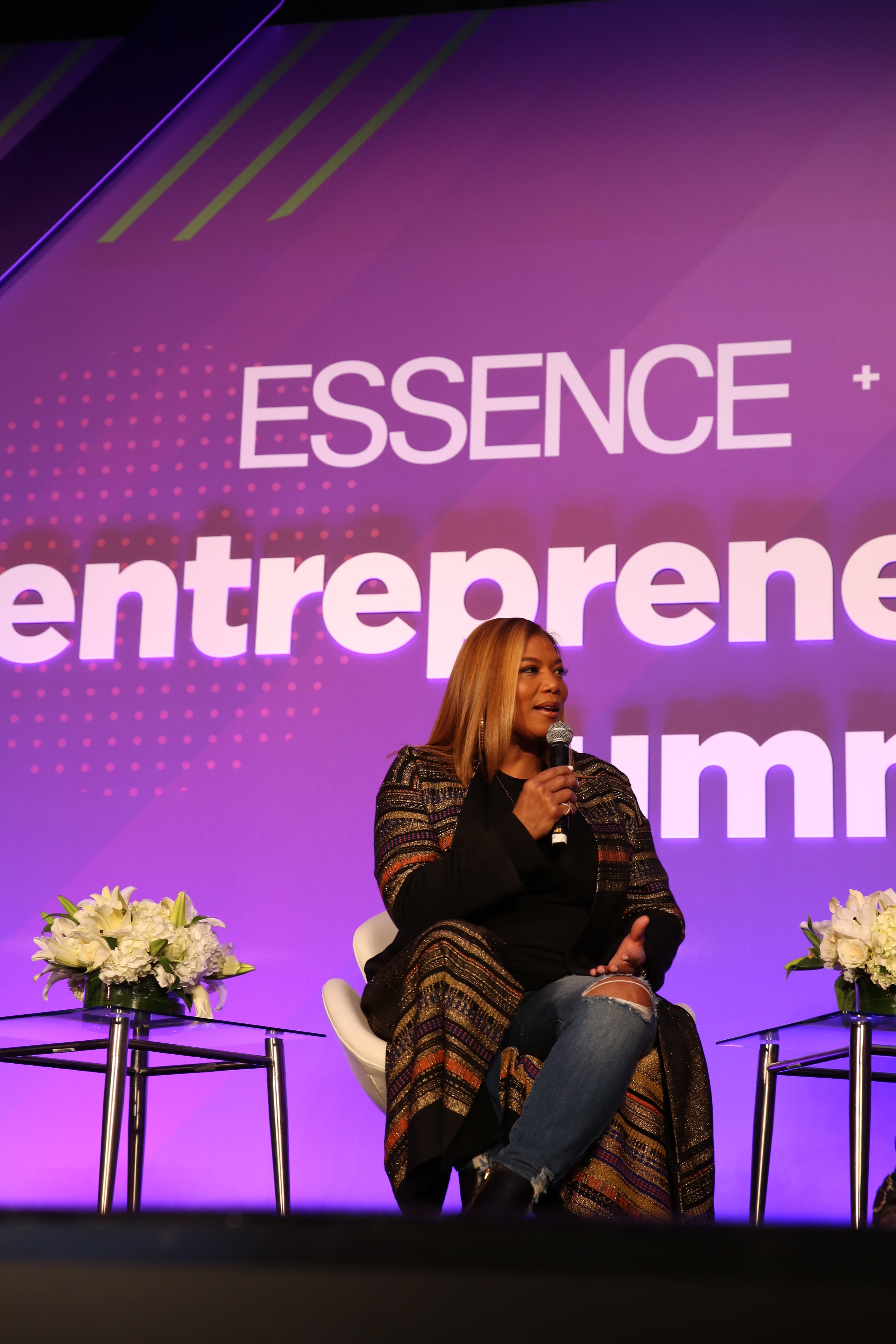
Reflecting on that business venture and the plethora of Black beauty lines today, Latifah shared: “Ultimately, it wasn’t about me making money. It was really about me, about you and I being able to access makeup just like every white woman can access makeup in every drug store across this country or every beauty counter across this country, even at a decent price point.”
After Wilson acknowledged this important aspect of the pioneer’s legacy in the beauty space, she threw it back to Latifah’s impact in music, bringing Rapsody to the stage and Latifah could hardly contain her excitement. The 2020 Grammy nominee shared her admiration for Latifah as a pioneer who captivated her the music world with her hit, “U.N.I.T.Y.,” with lyrics that demanded respect and gave other women the courage to do the same.
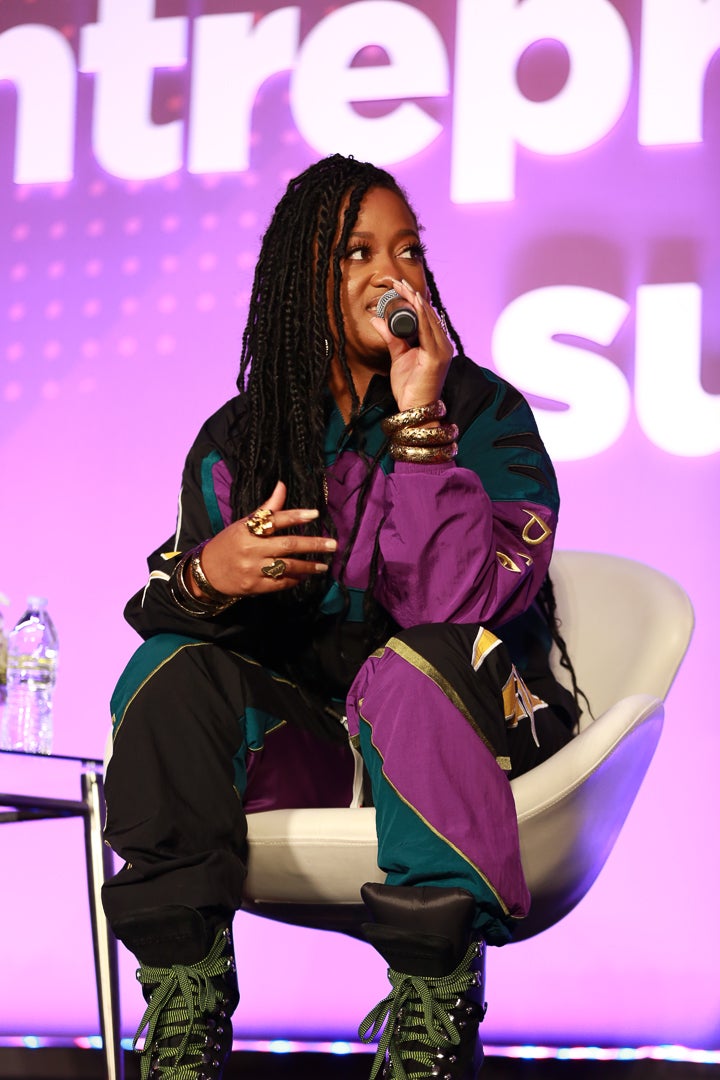
When Rapsody mentioned that she and the Queen first met at a White House party during the Obama administration, Wilson had to get the tea. “I thought Puff threw the best parties, but an Obama party is the best party,” Latifah dished.
As Rapsody relayed her struggles as a female rapper in the industry, Latifah shook her head that not enough had changed, citing how men too often adhere to a “pimp” mentality so that their beefs and egos prevent female rappers from working together. Latifah also spoke on income inequality and how it affects women all across the board.
“Income inequality is a real thing,” she said. “There really are some boys clubs out here, and they really think you should not be getting paid the same amount for the same work and I completely disagree with that,” she shared.
We can combat that, however, Latifah said. “We need to support each other, and we need to uplift each other,” she added.
Her collaboration with Rapsody on the single “Hatshepsut” from her Grammy-nominated album Eve, however, is an example of how women at the top of their game should lend a hand to those just starting out. She also revealed that she has Rapsody composing music for a big-budget hip-hop musical she is doing with Netflix that will be officially announced soon.
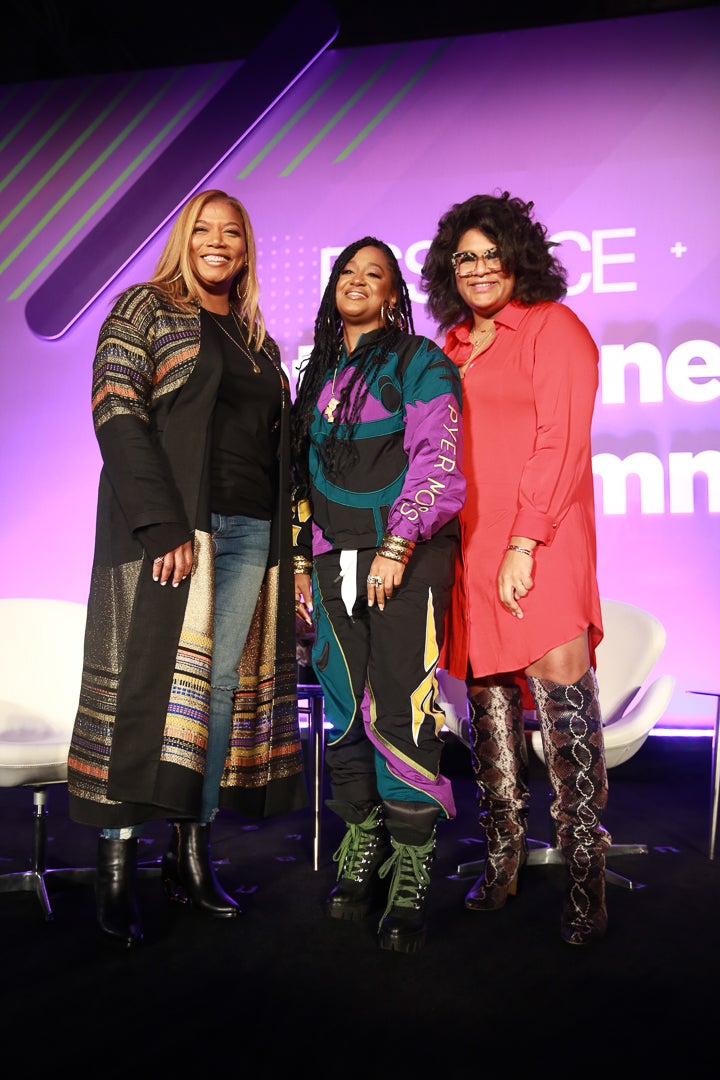
Although Latifah generally refrains from sharing unsolicited advice to avoid impeding on an artist’s creative freedom, after hearing the incredible female tributes on the album, she humbly suggested that Rapsody change the title from Alien to Eve. “We’re not aliens. The greatness in us as Black women is normal. The problem is, they think it’s alien,” she told Rapsody who embraced the knowledge.
As the two wrapped up, sharing how they were both raised to know that “Black was beautiful,” the crowd showed their appreciation for the powerful conversation and affirmation that Black wasn’t just enough; it was everything.
Check out the video above for the full conversation and then be sure to head back to ESSENCE.com for more of everything you missed on day two of the ESSENCE + New Voices Entrepreneur Summit and Target Holiday Market.
